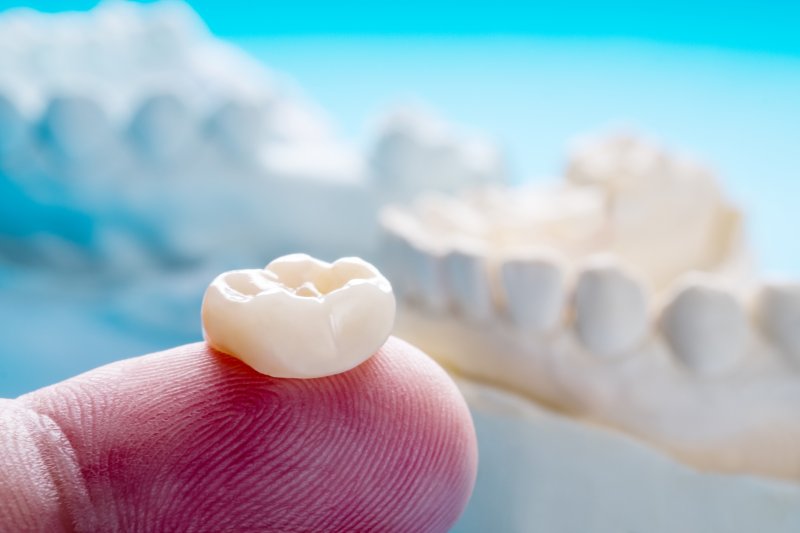
Dental crowns are used to restore the appearance and function of compromised teeth while protecting them from further damage or infection. They are often placed after a tooth has been severely damaged by injury or decay, and they are sometimes used to restore a tooth after a root canal. While dental crowns can be a crucial part of saving a tooth from extraction, you may experience some discomfort after receiving one. Here’s what you can expect when recovering from dental crown placement.
Expect Some Numbness Immediately Afterward
Before your dentist begins placing your dental crown, they will administer a local anesthetic to render the process completely painless. While this will certainly help you sit comfortably through the procedure, the numbing effects can last for a few hours afterward, and they can make you more likely to burn or bite the inside of your mouth. It’s best to avoid eating or drinking hot beverages until the anesthetic has worn off.
You May Experience Some Discomfort
After receiving a dental crown, you may feel some pain or discomfort around the affected area, but this will improve over time and be gone after a few days or weeks. Many patients find that over-the-counter pain relievers can take the edge off of this discomfort, and others use oral analgesic medications to numb the area. If you are experiencing dental sensitivity after receiving a dental crown, you may also try desensitizing toothpaste to stay comfortable.
Self-Care After Recovery
Once the numbing effect of the local anesthetic has subsided after treatment, you should be able to eat normally. However, avoiding sticky foods for the first twenty-four hours can prevent the crown from being dislodged while the cement is still solidifying. While you may be hesitant to indulge in chewy or crunchy foods immediately after the procedure, you can gradually begin enjoying them again as you become more confident in your chewing abilities.
It’s also important to practice excellent oral hygiene after receiving a dental crown, as the tooth the appliance protects will still be vulnerable to decay. Continue to brush with fluoride toothpaste and floss daily while seeing your dentist regularly for exams and cleanings.
About the Author
Dr. Nicholas Baldelli earned his dental degree at the Boston University Goldman School of Dental Medicine and completed an Advanced Education in General Dentistry residency at Boston University. He is a proud member of the Rhode Island Dental Association, the American Dental Association, and the Omicron Kappa Upsilon Honor Society. His office in Newport, RI offers general, cosmetic, emergency, and restorative dentistry such as dental crowns. If you think you may need a dental crown, contact his office online or dial (401) 847-7662.